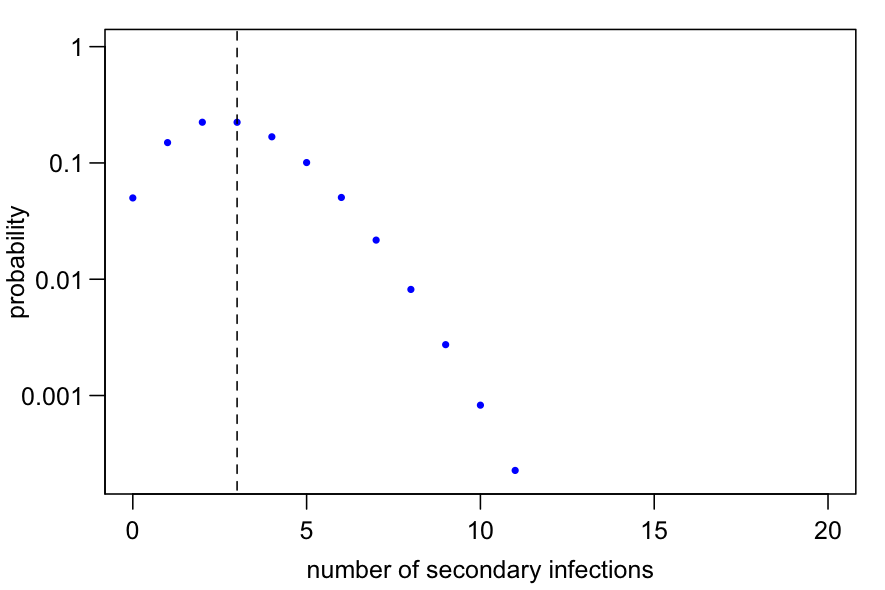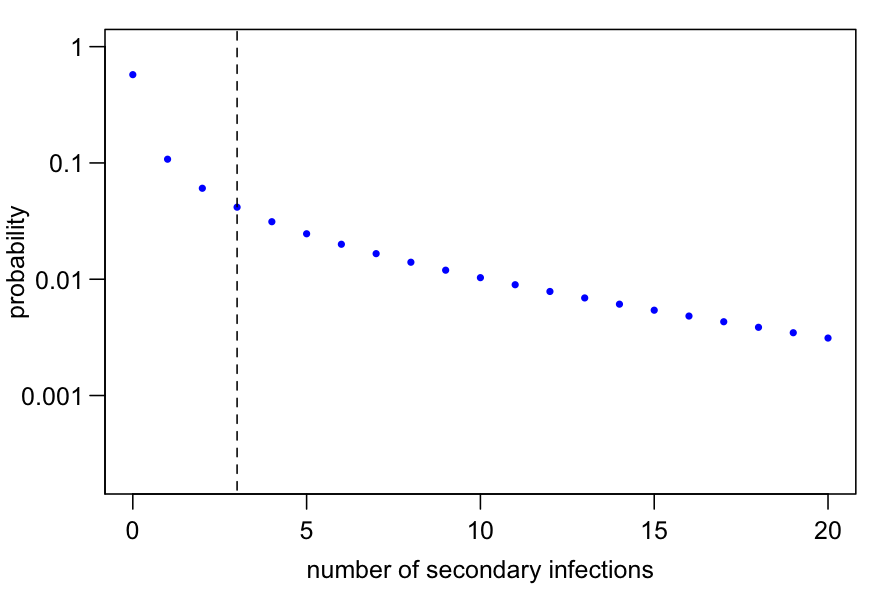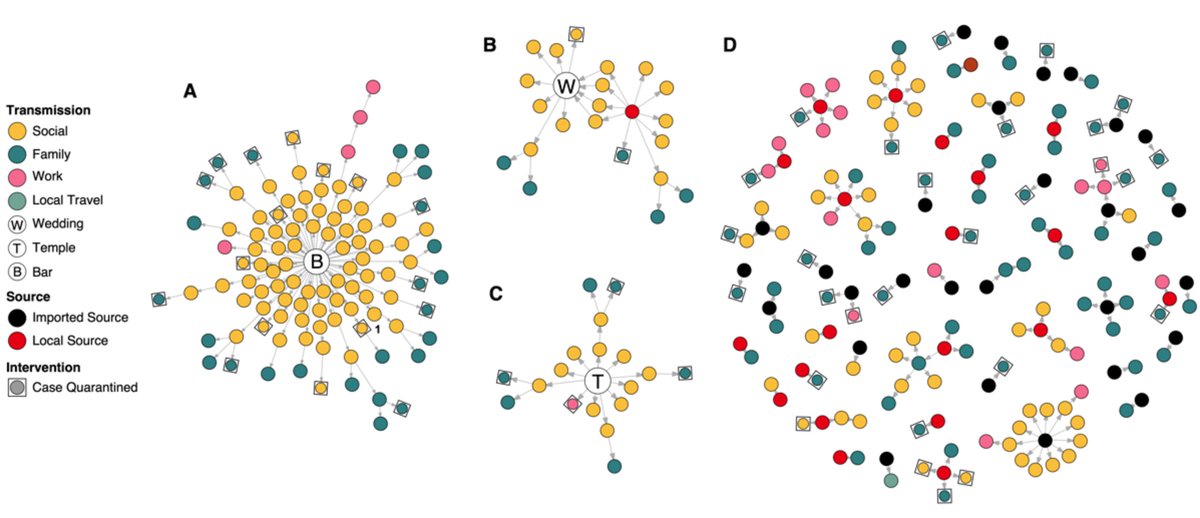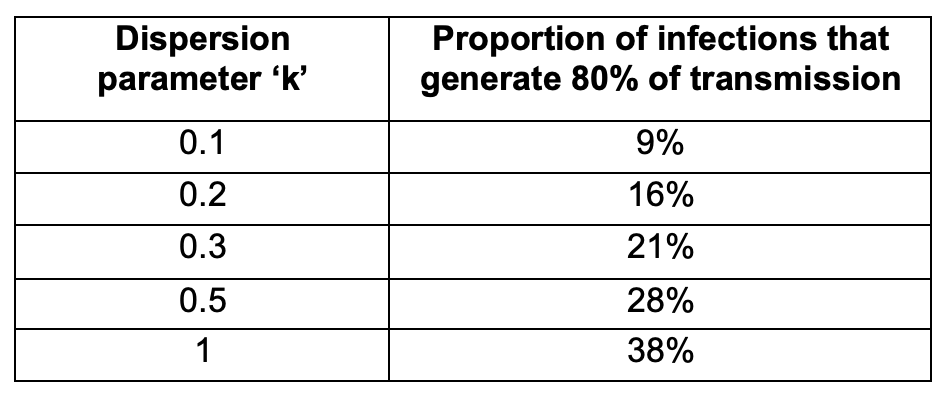I& #39;m getting asked more about the & #39;k& #39; parameter that describes variation in the reproduction number, R (i.e. describes superspreading). But what does this parameter actually mean? A short statistical thread... 1/
R measures average transmission per case, but in reality some cases may generate more infection than others, e.g. because of events/places they visit while infectious. So we need a way to estimate variation in R at the individual-level... 2/
We can do this by fitting a curve to the distribution of secondary infections, and see how much variation there is. A commonly used tool is the negative binomial distribution, which has mean=R and variation captured by a dispersion parameter & #39;k& #39; https://www.nature.com/articles/nature04153">https://www.nature.com/articles/... 3/
If k is very large, every case generates transmission randomly at constant rate with mean=R (i.e. equivalent to a Poisson process as k->infinity). Here& #39;s what the distribution of transmission looks like when R=3, k=1000 (dashed line shows R). 4/
If k is smaller, then there is more variability - some cases generate a lot of new infections, while most generate very few. Here& #39;s the negative binomial distribution when R=3, k=0.2 (plausible for COVID, SARS). Note x-scale is cropped at 20, but can obviously go higher 5/
So how do we calculate k? One way is to estimate directly from transmission chains reconstructed from contact tracing data, e.g. https://www.researchsquare.com/article/rs-29548/v1">https://www.researchsquare.com/article/r... 6/
Alternatively, we can estimate k from the distribution of outbreak sizes after infections are introduced to a new location, using a simple transmission model: https://wellcomeopenresearch.org/articles/5-67 ">https://wellcomeopenresearch.org/articles/... 7/

 Read on Twitter
Read on Twitter





